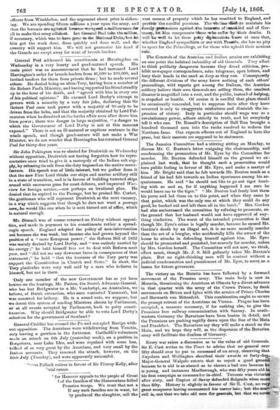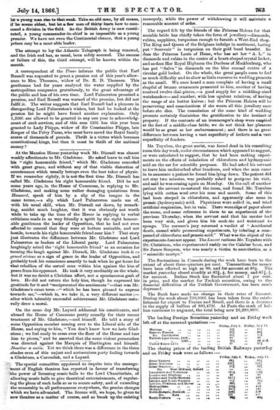Every war raises a discussion as to the value of
old Generals. Sir E. Gust writes to the Times to advise that no general over fifty should ever be put in command of an army, observing that Napoleon and Wellington sheethed their swords at forty-fie. Major-General Walpole retorts that to reject a good general because be is old is as absurd as to choose a bad one because he is young, and instances Marlborough, who was fifty years old in his first campaign as commander-in-chief. Inrenne won victoriea after sixty, and Eugene of Savoy defended Belgrade when more than fifty. History is slightly in favour of Sir E. Cust, no very great conqueror having commenced his career late ; but the inabe'. evil is,-not that we take old men for generals, but that we never let a young man rise te that rank. Take an old man, by all means, if he seems ablest, but let a few men ofthirty learn how to com- mand a division in the field. As the British Army is now consti- tuted, a young commander-in-chief is as impossible as a young premier. We have not even-the Continental chauce, that a young prince may be a most able leader.































 Previous page
Previous page